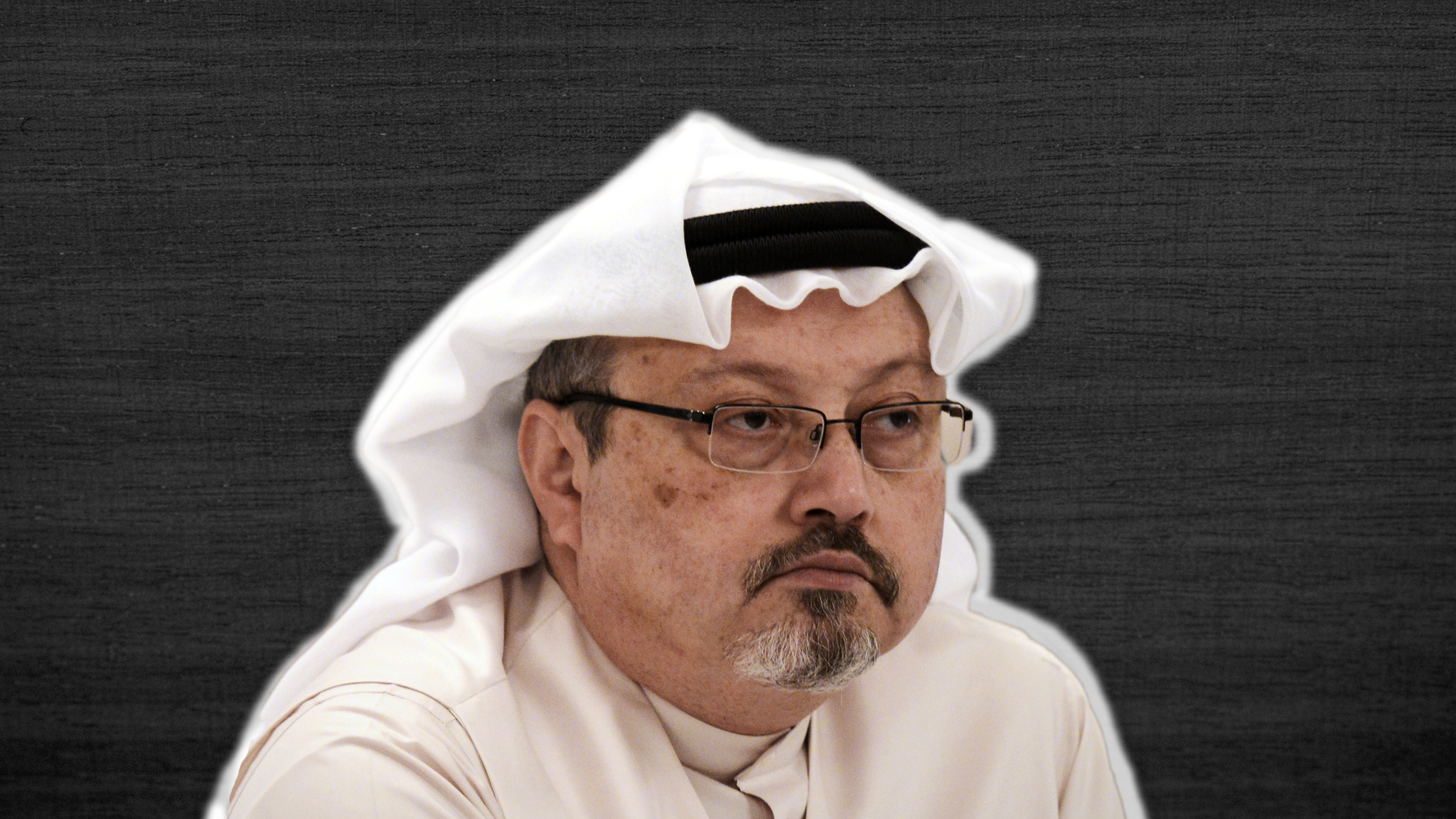Jamal Khashoggi: US 'yet to conclude' who was behind the murder
- Published
The BBC's Frank Gardner looks at what could happen to the man known as MBS
The US is yet to reach a final conclusion on the killing of journalist Jamal Khashoggi, officials say, despite reports the CIA believes it was ordered by the Saudi crown prince.
"Numerous unanswered questions" remain, a State Department statement said.
Sources told US media they did not believe the murder could have taken place without the approval of Crown Prince Mohammed bin Salman (MBS).
Saudi Arabia has called the claim false and denied he had any knowledge.
US President Donald Trump said he was due to receive a report on Tuesday which would outline who American authorities believe was responsible for the journalist's death.
Khashoggi, a prominent critic of the Saudi government, was killed after entering the Saudi consulate in Istanbul on 2 October to obtain a marriage document.
Saudi Arabia says Khashoggi was killed as the result of a rogue operation.
The public prosecutor has charged 11 people over the murder and is seeking the death penalty for five of them.
But after changing its account of the death, and amid suspicions of a high-level cover-up, the Saudi government remains under pressure over the killing.
What is the CIA's finding based on?
The Washington Post, for which Khashoggi worked, says the CIA assessment was based partly on a phone call , externalmade by the crown prince's brother, Prince Khalid bin Salman, the Saudi ambassador to the US.
Prince Khalid allegedly called Khashoggi at the direction of his brother and gave him assurances that he would be safe to go to the consulate.
How has the death of Jamal Khashoggi impacted the war in Yemen?
Prince Khalid, now back in Saudi Arabia, said on Twitter that he had not been in contact with Khashoggi for nearly a year.
He said he had never suggested Khashoggi - who had been in London for a conference until the day before his disappearance - should go to Turkey for any reason.
It is understood agents have also examined a call made to a senior aide of Crown Prince Mohammed by the team that carried out the killing.
Sources quoted in the US media stressed that there was no single piece of evidence linking the crown prince directly to the murder, but officials believe such an operation would have needed his approval.
The crown prince is widely described as the kingdom's de facto ruler.
Does the White House share this assessment?
Not yet. "Recent reports indicating that the US government has made a final conclusion [on the murder] are inaccurate," State Department spokeswoman Heather Nauert said.
She said the State Department would continue to seek the "relevant facts" and work towards making those involved in the killing accountable.
US President Donald Trump had spoken to CIA Director Gina Haspel and Secretary of State Mike Pompeo about the CIA's assessment of the Khashoggi murder, the White House said.
Press secretary Sarah Sanders gave no details but said Mr Trump had confidence in the CIA.
Earlier, the US president again stressed Saudi Arabia was a "great ally" and that he had to "take a lot of things into consideration".

Damning case but no smoking gun
By Frank Gardner, Security Correspondent, BBC News
The reported CIA assessment that MBS ordered the killing of Jamal Khashoggi largely matches those in other Western capitals, including London.
The purported intercepted phone call - denied by the Saudis - between MBS's brother in Washington, Prince Khalid bin Salman, and Khashoggi, urging him to visit the Saudi consulate in Istanbul, would appear to be at the behest of the crown prince.
A second intercepted phone call was from the hit team on the day of the murder to someone inside MBS's inner circle in the Saudi capital Riyadh. Again, it is hard to believe this would have been without the crown prince's knowledge.
Taken together with the Sigint (signals intelligence), the case against MBS is damning but still circumstantial.
Government officials do not believe there is a metaphorical "smoking gun" that explicitly ties MBS to the murder. But drawing on well-established diplomatic and intelligence contacts, they know that in that part of the world nothing gets done without sign-off from the top.
In the tightly controlled Arab Gulf states, there is simply no such thing as "a rogue operation", as Saudi statements have described it. Meanwhile the glaring inconsistencies in the official Saudi explanations have only deepened suspicions of a state-sponsored cover-up.
- Published2 November 2018
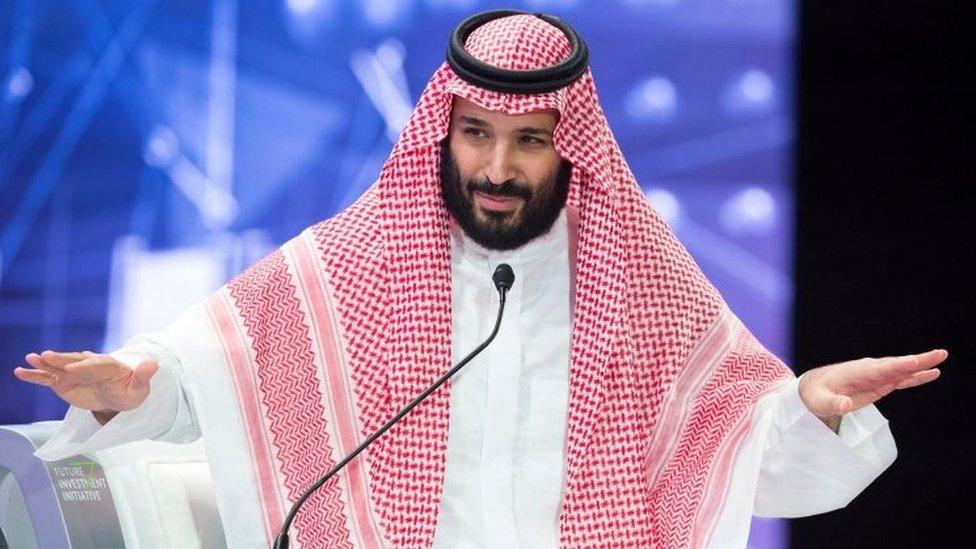
- Published22 October 2018
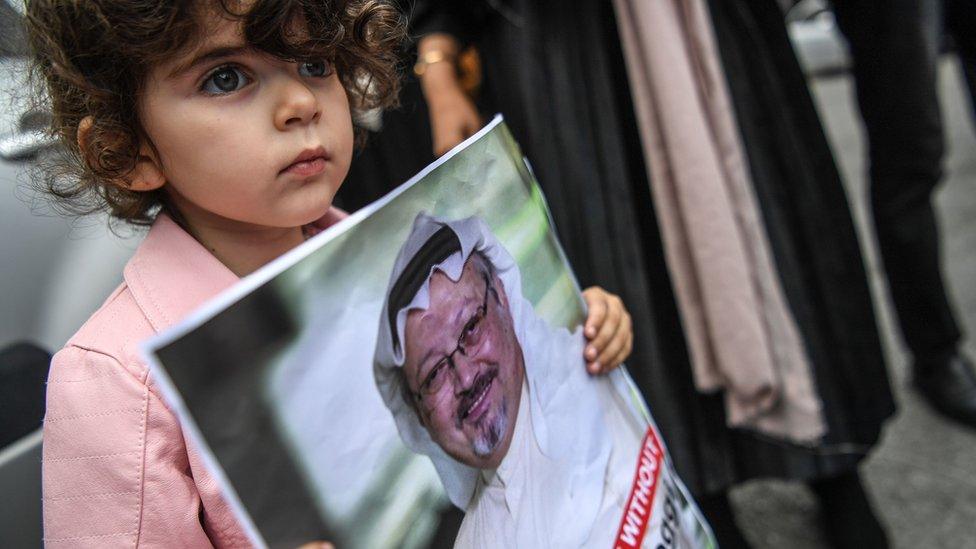
- Published15 November 2018
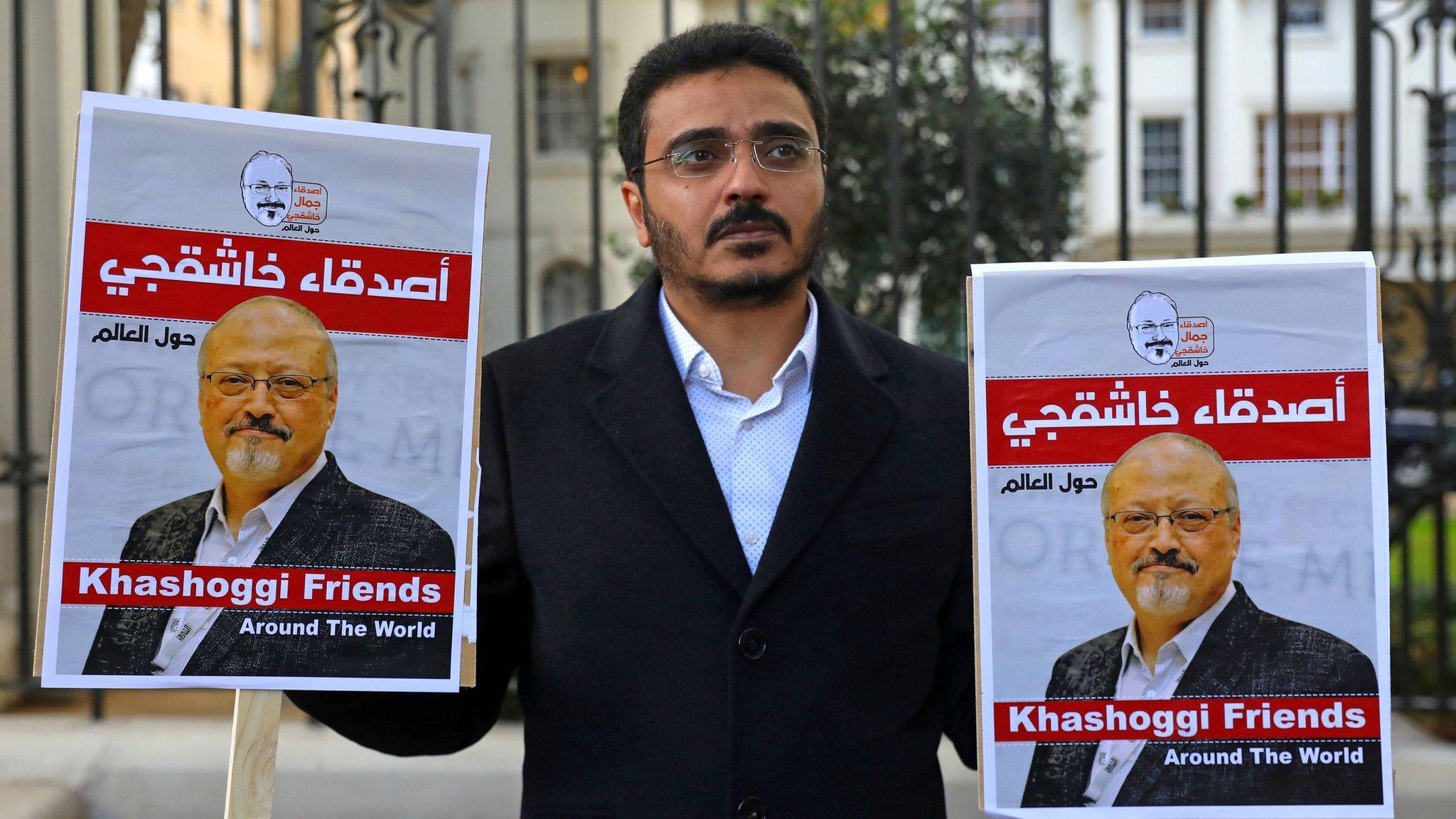
- Published15 November 2018
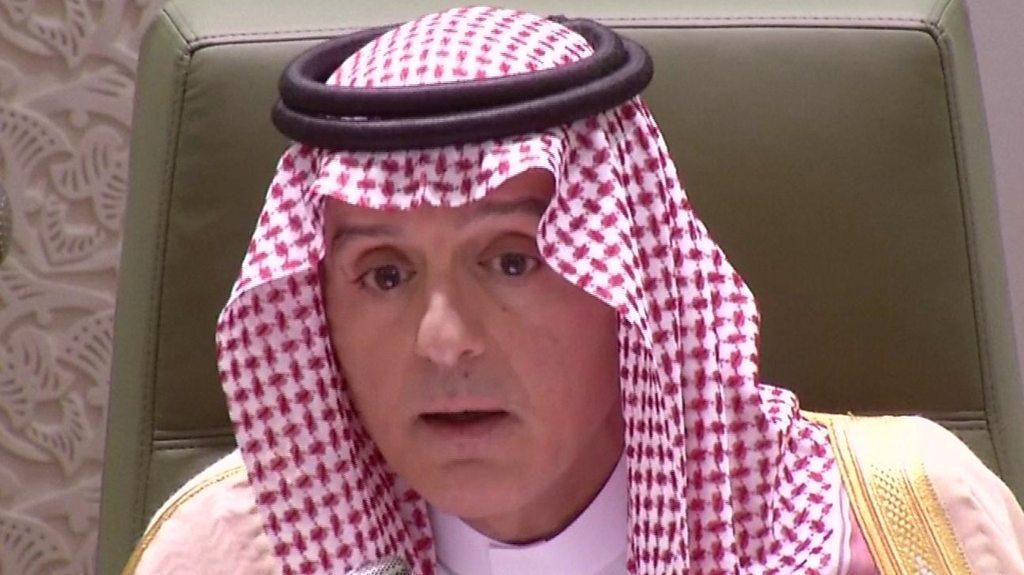
- Published24 February 2021
